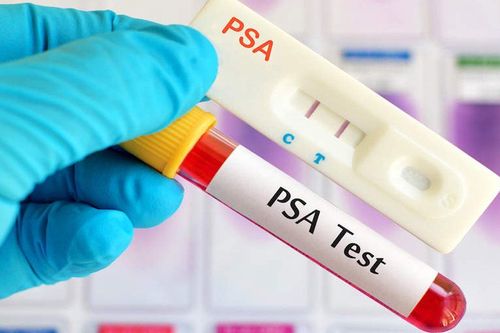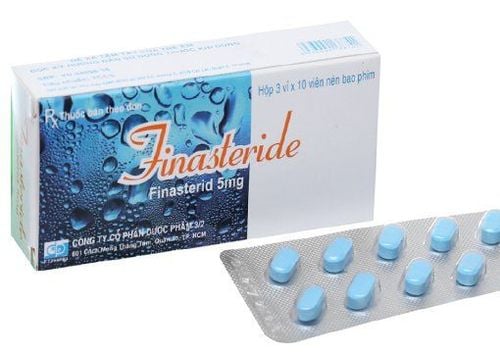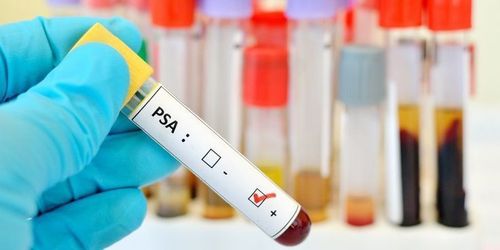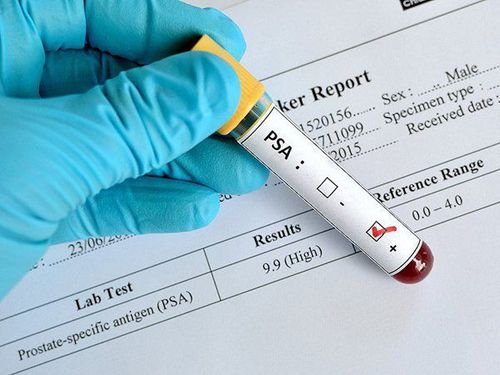This is an automatically translated article.
Most PSA in the blood is bound to plasma proteins, PSA not bound to a protein is called free PSA or free PSA. The determination of the fPSA / tPSA ratio is considered an effective test method for the differential diagnosis of prostate cancer cases with other diseases.1. What does PSA stand for?
PSA stands for prostate-specific antigen with the English name Prostate-specific antigen, is a glycoprotein encoded by the KLK3 (Kallikrein-3) gene, which is secreted by the epithelial cells of the prostate gland. prostate gland in men.
2. What is the free PSA index?
The majority of PSA in the blood is bound to plasma proteins, a small amount of about 30% of PSA is not protein bound and has no proteolytic activity called free PSA. The free PSA/total PSA ratio (free PSA/total PSA ratio = fPSA/tPSA) contributes to the diagnosis of prostate cancer when the tPSA concentration ranges from 4 to 10 ng/mL. The risk of prostate cancer is high when the fPSA/tPSA ratio is ≤ 0.15.3. PSA and fPSA index for prostate cancer diagnosis
Prostate cancer, also known as prostate cancer, is a form of cancer that develops in the prostate gland in the male reproductive system. Prostate cancer grows slowly, but if not detected early, it can spread to other parts of the body, especially into the bones and lymph nodes.Prostate cancer causes pain and difficulty in urinating, problems with sex, or erectile dysfunction. Other symptoms are likely to develop in the later stages of the disease

Chỉ số PSA chẩn đoán ung thư tuyến tiền liệt
The development of prostate cancer is related to many factors including genetic factors and diet. Prostate cancer is discovered from abnormal symptoms, a physical exam, a prostate-specific antigen (PSA) test, or a biopsy.
In the early stages of prostate cancer men often have no obvious symptoms. PSA test indicates prostate problems for prompt treatment options. It is also a test that measures the level of prostate-specific antigen (PSA) in the blood. In the elderly, the prostate gland enlarges and the PSA level also increases. A large amount of PSA in the blood on the PSA Test indicates a problem with the prostate, but not necessarily cancer. Elevated PSA can be caused by prostate enlargement or inflammation and, less commonly, prostate cancer
The PSA test increases the likelihood of cancer, which can be identified by taking a biopsy of the gland prostate and examined under the microscope for differential diagnosis. Further tests, such as CT scans and bone scans, may be performed to identify metastases.
Treatment for people with prostate cancer can choose methods such as surgery, radiation therapy, radiosurgery, and proton therapy. Other treatments, such as hormone therapy, chemotherapy, cryosurgery, and HIFU (intensity focused ultrasound), depend on the clinical condition and desired outcome.
Men's age and underlying health, extent of metastases, tumor appearance under the microscope, and cancer response to initial treatment are important in diagnosing the disease. The decision to treat localized prostate cancer (tumour contained within the prostate gland) for curative purposes is a patient's trade-off between the expected benefit and the adverse effects of survival. and the patient's quality of life.
Testing is an important part of the diagnosis and treatment process. Therefore, the laboratory department at Vinmec International General Hospital is fully equipped with modern and synchronous testing equipment for cancer screening and screening as well as a team of proficient and professional testing technicians. apply operating procedures according to international medical standards. One of them is a screening test for prostate cancer in men over the age of 40 who are included in the physical examination program, especially those who have been diagnosed with an enlarged prostate.
Vinmec Times City International General Hospital has implemented PSA testing techniques for cancer diagnosis and prostate cancer screening in men over 40 years old, especially those diagnosed with hypertrophy. prostate gland included in the male health check program. Customers register for a general health check-up package at Vinmec International General Hospital for timely medical examination and screening.
Customers can go directly to Vinmec Times City to visit or contact hotline 0243 9743 556 for support.
SEE ALSO:
How much does PSA indicate the risk of prostate cancer? How much PSA indicates the risk of prostate cancer? What is prostate cancer screening?













